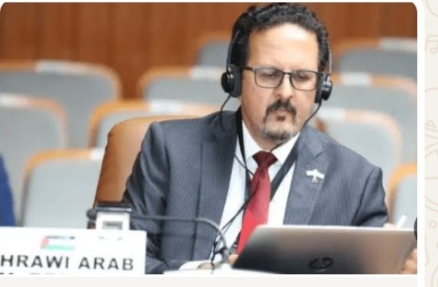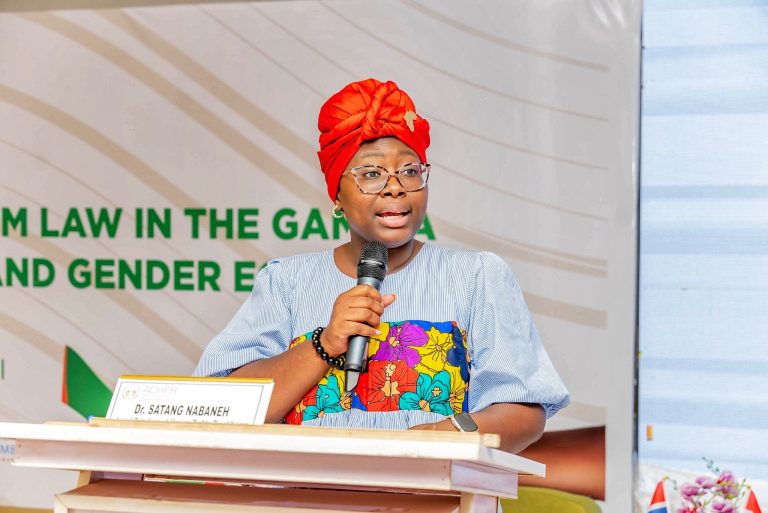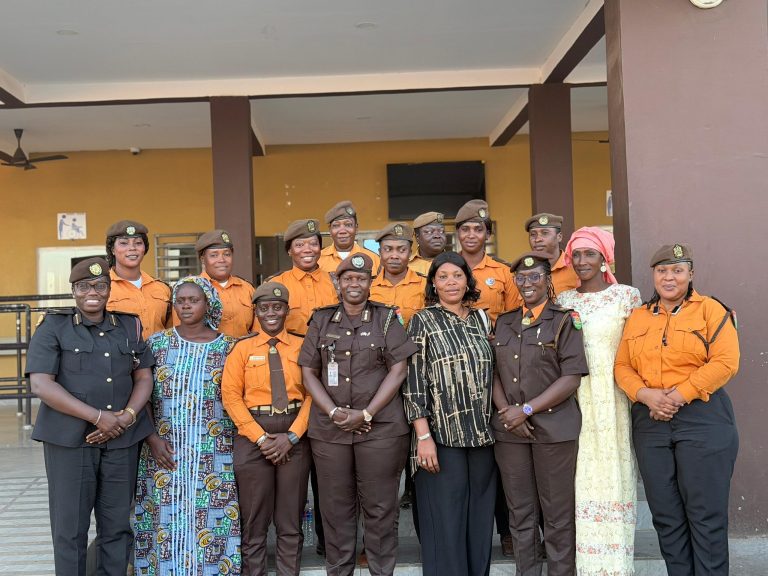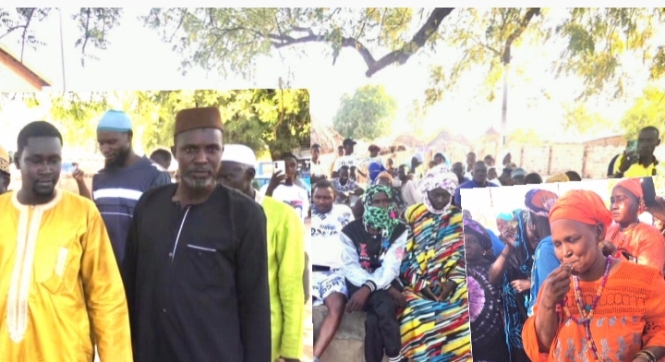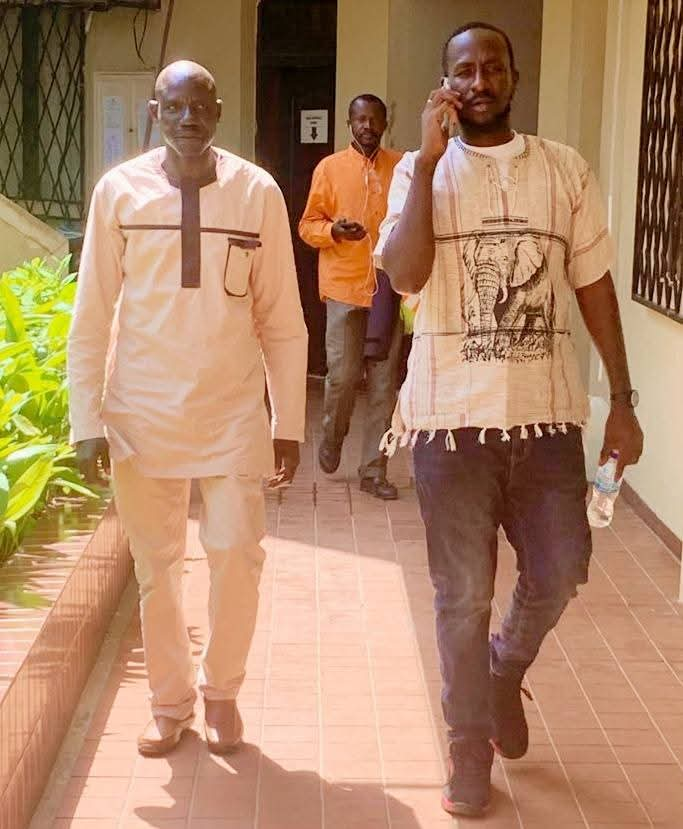
The High Court, presided over by Justice Ebrima Jaiteh, today delivered its final verdict in the diplomatic passport scandal case, involving Mansa Sumareh (former President Barrow’s Driver) & Ebrima J.S. Sanneh (Protocol officer, Ministry of Foreign Affairs).
Justice Jaiteh found the prosecution failed to prove its case beyond a reasonable doubt and ordered the acquittal and discharge of both accused persons on all eight counts.
Mansa Sumareh, former Chief Driver at the State House, and Ebrima J.S. Sanneh, a Protocol Officer at the Ministry of Foreign Affairs, were arraigned on an amended bill of indictment filed on June 3, 2020, on eight counts, including Forgery of Official Documents, Conspiracy to commit a felony, Uttering False Documents and Making documents without authority.
The case emerged from the alleged illegal procurement of a diplomatic passport for one Bakary Susso using a forged letter of approval from the Office of the President. The prosecution’s case centred on the claims that Bakary Susso allegedly paid Sumareh a total of $3,400 to secure the passport. Also prosecution witnesses (PWs) such as police investigators, the applicant, and two Protocol Officers from the Office of the President and the Ministry of Foreign Affairs.
The Defence Counsel, S. Gaye argued that the prosecution failed to prove any agreement between the accused for the conspiracy counts. He also submitted that the critical counts of Procuring Execution of Documents (Counts 7 and 8) should be struck out because the alleged victim, Abdoulie Bah, was never called to testify, rendering the charge unsupportable.
The court evaluated the testimonies and highlighted severe issues with the credibility and reliability of the Prosecution witnesses, finding that inconsistencies and a lack of independent corroboration.
PW4: Momodou Sowe (Protocol Officer), who testified that he drafted a purported approval letter and accepted $300 from Sumareh, was found to be unreliable and unconvincing by the Court. Justice Jaiteh noted that Momodou Sowe’s narrative oscillates between self-incrimination and self-exoneration, and that his claim of drafting the fake approval to expose Mansa Sumareh was an implausible post-facto rationalisation of his misconduct. Justice Jaiteh characterised Sowe’s conduct as a “grave breach of official duty and integrity” and rejected his testimony as not credible.
PW6: Kebba Drammeh (Principal Records Officer), who admitted to stamping the alleged approval letter (Exhibit P6) in his testimony, which effectively authenticated it, without verifying its source, authenticity, or registration. Justice Jaiteh found his testimony to be contradictory and a demonstration of gross negligence of duty, stating his act amounted to a reckless disregard for institutional safeguards.
PW8: Bakary Susso (Passport Applicant): Susso’s claim of paying a total of $3,400 to the first accused was dismissed as inherently fragile. Justice Jaiteh noted the evidence was unsupported by any form of corroboration, such as receipts, bank transfers, or witnesses to the cash handover. The Court ruled that his uncorroborated assertion was unsafe for the purpose of proving that the accused received the stated sums.
The court adopted the central legal question of whether the prosecution proved its case beyond a reasonable doubt, citing the Woolmington v DPP (1935) AC 462 authority, stating that the burden of proving every element of an offence rests squarely on the prosecution.
The court’s unequivocal conclusion was that the Prosecution had failed to prove, beyond a reasonable doubt and had made a fundamental failure to prove the essential elements of the alleged crimes.
Momodou Sowe (PW4 – Protocol Officer): The Court found Sowe’s testimony unreliable and unconvincing. Sowe had claimed he drafted the purported forged approval letter to expose Sumareh, but Justice Jaiteh rejected this as an implausible post-facto rationalisation of his misconduct.” The Judge characterised Sowe’s actions as a grave breach of official duty and integrity.
Kebba Drammeh (PW6 – Principal Records Officer): Drammeh, who admitted to stamping the alleged approval letter (Exhibit P6) without verifying its source or authenticity, was found to have demonstrated “gross negligence of duty.” Justice Jaiteh stated his act amounted to a reckless disregard for institutional safeguards.
Bakary Susso (PW8 – Passport Applicant): Susso’s critical claim of paying a total of $3,400 to Mansa Sumareh was dismissed as “inherently fragile.” The Court noted the evidence was entirely uncorroborated, lacking receipts, bank transfers, or any witnesses to the alleged cash handover, making the assertion unsafe for proving the accused received the sums.
In its legal analysis, Justice Jaiteh emphasised the enduring principle from Woolmington v DPP that the burden of proving every element of an offence rests squarely on the prosecution.
Forgery & Making Documents (Counts 1 & 5): Justice Jaiteh stated that the prosecution failed to present direct evidence that either of the accused had prepared or signed the forged document. He said the evidence showed that PW4 Sowe himself created the letter, thereby failing to prove the essential element of making a false document with intent to defraud against the accused persons.
Uttering False Documents (Count 3): Justice Jaiteh emphasised that the charge failed due to a lack of mens rea (criminal intent or knowledge) and the second accused, Ebrima J.S. Sanneh, was merely performing his official duties as a Protocol Officer when submitting the document, and the prosecution did not prove he knew the document was false.
Conspiracy Counts (2, 4, 6, 8) Justice Jaiteh found no evidence of collusion, coordination, or intent to commit a felony between the two accused, noting they were strangers before the investigation. He added that the prosecution did not meet the burden of proving a coordinated agreement.
Justice Jaiteh’s final decision highlighted four core findings that led to the acquittal of the accused persons.
1. The Prosecution failed to prove, beyond a reasonable doubt, any of the essential elements of the alleged offences.
2. There is no credible evidence that the accused persons forged, uttered, or made any documents without authority.
No conspiracy between the accused persons has been established.
3. The cumulative effect of uncallable critical witnesses and inconsistencies in the Prosecution’s case undermines its credibility.
4. The Judge concluded that the totality of the evidence was insufficient, tenuous, and contradictory; he acquitted and discharged Mansa Sumareh and Ebrima J.S. Sanneh on all counts.
By: Kexx Sanneh

